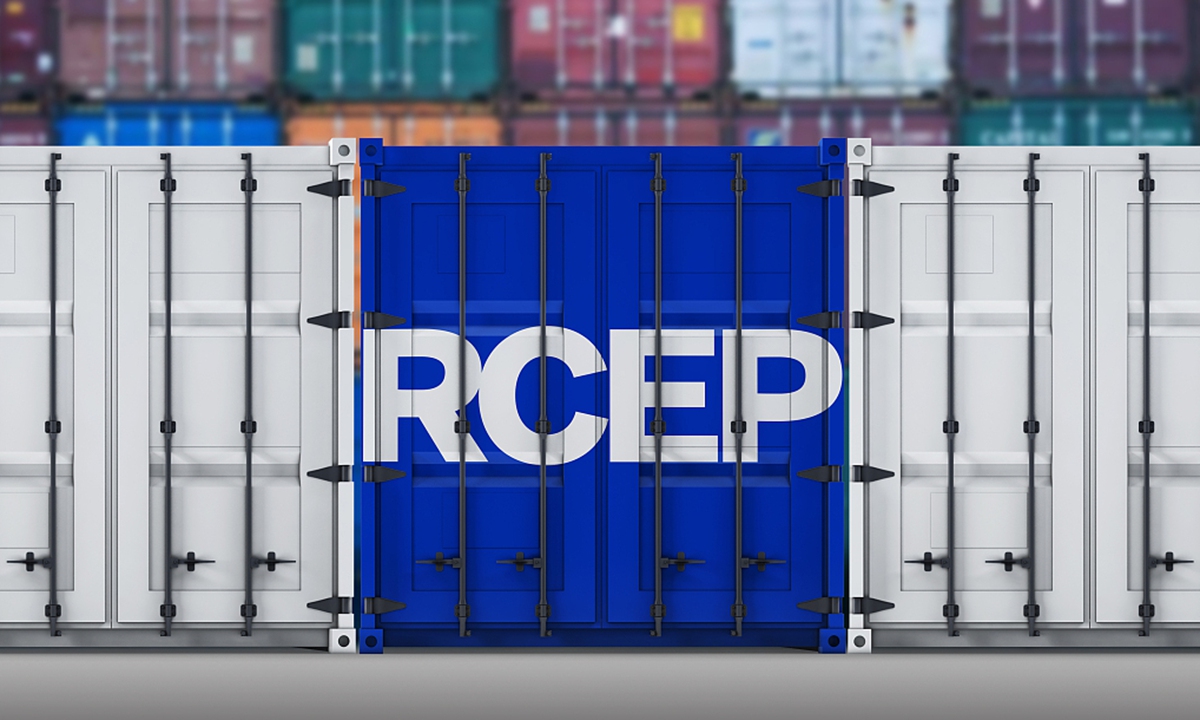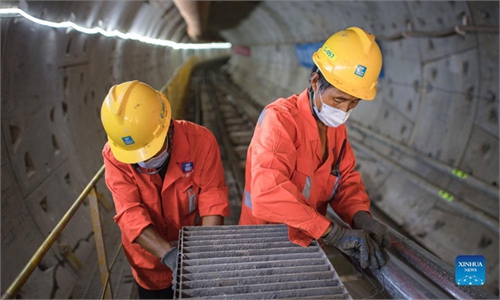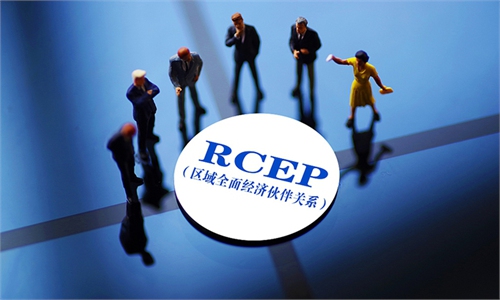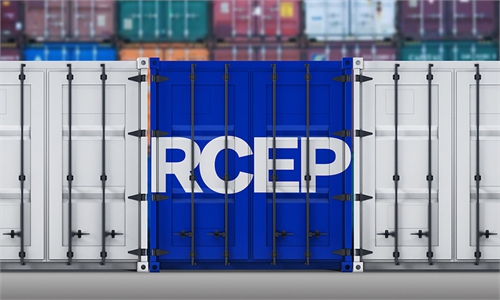RCEP starts to deliver benefits for enterprises: business leaders
Trade pact helps cut costs, boost regional integration: business leaders

RCEP Photo:VCG
Effective implementation of the world's largest free-trade deal - the Regional Comprehensive Economic Partnership (RCEP) - has already helped enterprises save $220,000 on tariffs as of Wednesday, a senior Chinese trade official said on Thursday, while underscoring the massive benefits of the trade pact for regional and global industries.
Since the RCEP officially came into force on January 1, the China Council for the Promotion of International Trade (CCPIT) issued 275 RCEP certificates of origin for 135 Chinese enterprises from 18 provinces and municipalities as of Wednesday, which are expected to reduce tariff payments by $220,000, said Gao Yan, chairperson of the CCPIT.
Addressing the RCEP Business Leaders Forum in Nanning, South China's Guangxi Zhuang Autonomous Region, Gao noted that these certificates mainly covered textiles, chemicals, medical products and food, and the export destinations included Japan, Australia and other member countries, with an export value of more than $19 million.
Under the RCEP, more than 90 percent of merchandise trade among members will eventually be subject to zero tariffs. The agreement includes 10 ASEAN members, as well as China, Japan, South Korea, Australia and New Zealand. The 15 states' total population, GDP and trade each account for about 30 percent of the world total.
The RCEP will significantly improve the overall business environment in the region, promote the integration of regional industry, supply and value chains, and strengthen efficient production division and cooperation among members, guests at the event in Nanning said.
Junichiro Nakatsuka, president of Mitsubishi Corp China, said that the RCEP can help boost complementary relationships among Japan, China and Southeast Asian countries.
"By effectively integrating the digital trend of Chinese enterprises, the advanced industry chain management of Japanese enterprises and the advantages of local enterprises in Southeast Asia, it is highly possible to achieve a win-win situation among the three parties," he said in a keynote speech during the forum.
As the agreement takes effect, tariffs on more than 65 percent of China's trade in goods with ASEAN, Australia and New Zealand are expected to immediately reach zero.
In 2022, China will eliminate tariffs on 24.9 percent of imported goods from Japan, and about 55.5 percent of Japan's imports from China will be subject to zero tariffs.
More products will be subject to lower tariff each year after that, China Media Group reported.
"With the implementation of the RCEP, we hope that companies from China, Japan and South Korea will cooperate more closely. We also hope that Japanese companies can conduct comprehensive cooperation with Chinese companies and welcome more Chinese companies to enter the Japanese market," Nakatsuka said.
According to customs data, in the first 11 months of 2021, China's trade with the other 14 RCEP members totaled 10.96 trillion yuan ($1.71 trillion), accounting for 31 percent of China's total foreign trade.
Imported machinery and appliances, plastic products, and electrical equipment, enjoy the biggest tariff reduction under the RCEP, according to customs.
Traditional labor-intensive sectors in Southeast Asia will reap benefits from the RCEP, such as mechanical and textile industries, said Zhou Shixin, director of the Institute for Foreign Policy Studies at the Shanghai Institute for International Studies.
"The supply and industry chains in some Southeast Asian countries are not complete, and they compete with one another… As the RCEP comes into force, high-end manufacturing in Singapore, Japan and South Korea together with China's complete industry chains will boost inter-regional investments, and integrate the region's manufacturing chains better," Zhou told the Global Times on Thursday.
Thanongsinh Kanlaya, vice president of the Lao National Chamber of Commerce and Industry, said that the inclusiveness of the RCEP is one of its strengths.
"Although Laos is at the lower end of the global supply chain compared with Thailand, Japan and China, the RCEP offers us a great opportunity to strengthen our supply chain," he said.
"If an economic crisis or supply crunch takes place, the region would have strong capability to deal with the challenges as a whole in order to avoid the rupture of industry chains," Zhou noted.



